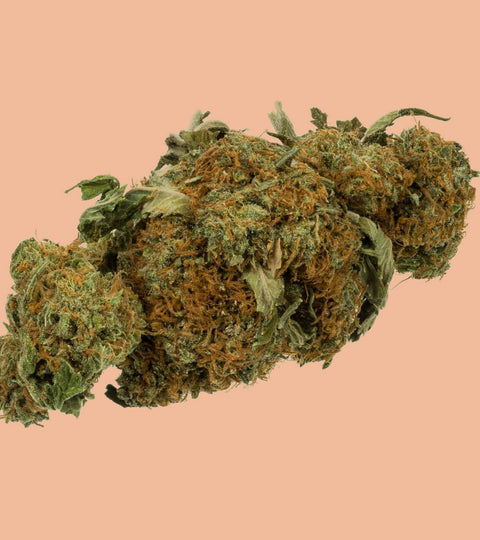5 Reasons Why You Shouldn't Use Cannabis
For so long cannabis has been demonized and made out to be the "devil’s lettuce," with ad campaigns comparing "your brain on weed" to an egg frying on the street. Even as states move forward with medical and adult use cannabis legalization, the federal government still considers cannabis one of the most dangerous substances on the planet. In response to this outlandish brainwashing by the government as to cannabis’ demonic effects, the pro-cannabis movement sometimes lauds cannabis as a cure-all with no harmful side effects whatsoever. However, this is also not true. Cannabis is not a cure-all and may not be for everyone. Sure, it is safer than most substances and has quite the medical potential, however, it is not without risk. In some cases, cannabis may even do more harm than good. In this article, we will explore five reasons to avoid using cannabis.
1. Cannabis May Cause Anxiety, Paranoia, and Even Temporary Episodes of Psychosis
THC, the main psychotropic compound in cannabis, can have negative side effects if overdosed. And overdose means something different for everyone. At even relatively low levels of THC (~5 mg) people can experience anxiety, paranoia, and heightened self-awareness that may even lead to a panic attack. This negative reaction is especially true for oral ingestion of THC. When THC is taken orally it undergoes a reaction in the liver that transforms the compound into a much smaller, more psychotropic compound called 11-hydroxy-THC. This compound causes a much stronger and longer psychotropic experience that can be very intense for some. There is even a documented medical disorder called Edible Induced Psychosis where people who have taken cannabis orally experience a temporary psychotic episode. After the episode is finished patients are typically fine with no need for ongoing psychiatric treatment. However, if you are prone to anxiety, paranoia, or psychosis you may want to steer clear of THC or start with an incredibly small microdose.
2. Smoking Cannabis Can Lead to Lung Issues
Smoking cannabis may cause lung issues. This is because the combustion reaction occurs at such a high temperature that toxic byproducts such as tar, ammonia and carbon monoxide are created and inhaled. Therefore chronic use of cannabis by smoking is associated with respiratory symptoms such as bronchitis and cough. Luckily, there is no link to smoking cannabis and lung cancer, so smoking cannabis is still better for your lungs than smoking cigarettes. But if you have weak lungs or respiratory issues you may want to choose another route of consumption.
3. Cannabis Can Affect Blood Pressure
Compounds in cannabis can act as vasodilators, meaning they can dilate blood vessels allowing more blood to pass through quicker. THC in particular acts as a vasodilator causing blood to rush through blood vessels, heart rates to elevate and blood pressure to drop. If you have low blood pressure to begin with, consuming THC can cause a drastic drop in blood pressure and fainting can occur. If you are on medication for blood pressure or have a heart condition consuming THC may not be for you.
4. Cannabis Can Lead to Memory Impairment, Especially When Used by Young Adults
We don’t have enough research to truly understand the long-term effects of cannabis. However, there is scientific evidence to suggest that THC, when consumed early in life, can increase the risk of memory impairment, loss, and even in some cases mental illness. People should abstain from using THC until they are adults and their brain has developed.
5. Cannabis is an addictive substance
Now this is a controversial topic, but yes technically cannabis is an addictive substance. Addiction is defined by withdrawal and tolerance. People can develop a tolerance to cannabis and they can experience withdrawal symptoms when abstaining from its use. Therefore, cannabis is addictive. Of course, in most cases, the withdrawal symptoms are not life-threatening and may include drowsiness and general crankiness. There is such a thing as Cannabis Use Disorder (CUD). CUD can affect people’s lives and have symptoms such as physical dependence, withdrawal, and economic/social hardships. While cannabis is a safer alternative to most substances, including pharmaceuticals, it is not without risk.
Cannabis can have many benefits, but like all things in life, it isn’t "black and white." Make sure to talk to your doctor and do your research before choosing to incorporate cannabis into your lifestyle.
Keep Reading: Microdosing, The Secret to a New Cannabis Experience.
by Emma Chasen
for Goldleaf

